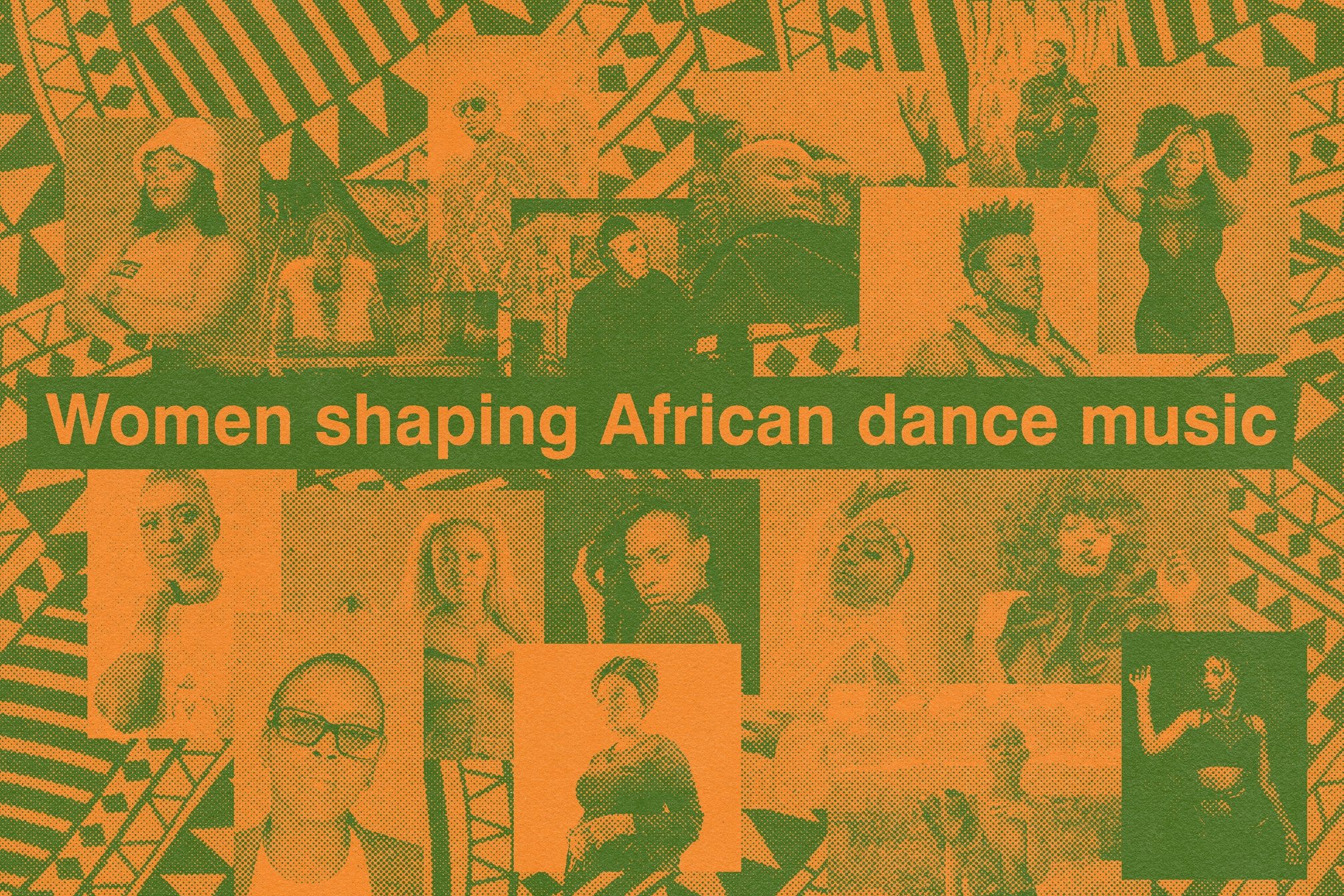 Features
Features
17 women shaping African dance and electronic music
Shiba Melissa Mazaza speaks to gamechanging artists from across the African continent
When disco and house music started, the surrounding scene offered respite to Black and queer communities in places that would rather see them out of sight and mind. Today, new iterations of electronic music are opening new doors — this time for women of African descent, enabling them to create and explore sonic worlds rooted in marabi, orutu, kalindula and kwaito, towards undeniably potent sounds heirloomed within afrotech, singeli, amapiano and gqom. Ever more women are making their way behind the decks, in front of the mic and onto the stage in an exciting time for the continent. Not only are the following women blazing trails for the future of the Africa's dance music scenes, but they’re using their voices to change the greater narrative of electronic music as a very Western, very male territory. In this article, we reach out to a few women across amapiano, ambient, gqom, house, afrotech, tribal and beyond to share their thoughts on what promises to be an intriguing year for African dance music, while showing some love to the ones who continue to break boundaries, stereotypes and moulds.
Read this next: The beautiful chaos of Amapiano, South Africa's emerging house movement
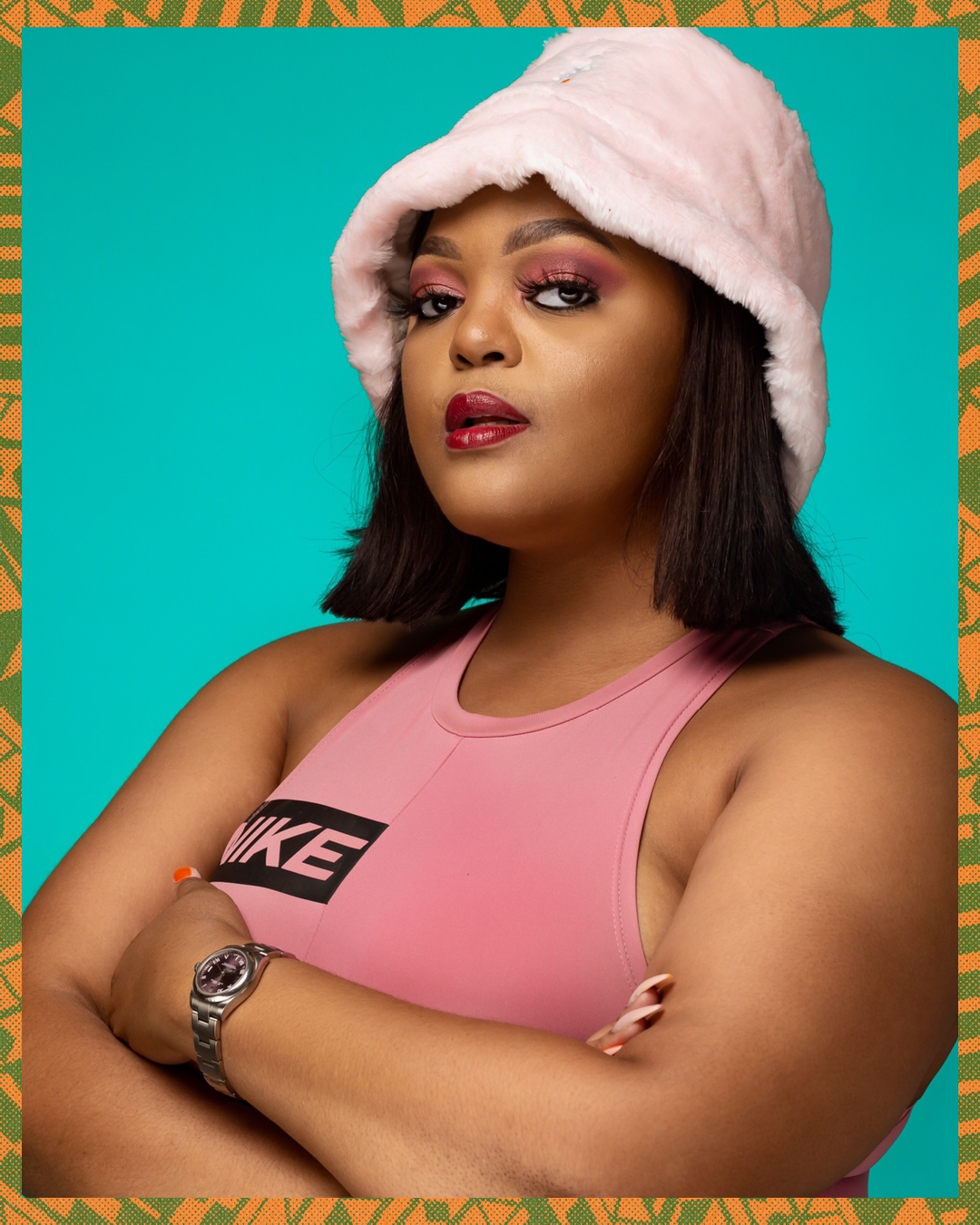
DBN GOGO
“Men are boring. Women have a better work ethic. Men get away with doing the same thing all the time. We don’t have that luxury.”
Currently setting the pace as one of the only female producers in South Africa’s Amapiano scene and well known for her flawless presence in studio and on stage, DBN GOGO has made her name from performing at Afropunk to Tshwanefontein and ULTRA — and she’s itching to take her sound to the rest of our beautiful continent. Her debut album 'Thokoza Café', created in tandem with DJ and producer Dinho, features some heavy hitting basslines with carefully crafted tracks (one of which is the first ever Francophone amapiano track, 'French Kiss') with a spirited live set dubbed GlassOff that keeps everyone thoroughly entertained.
“Men just tend to give us the same thing over and over. And even when you go see them at a show, it's not something exciting... They all look the same; they're dressed the same, they're not doing anything new. You know, half the guys aren't even having fun while they're DJing. They're not even smiling! And it's just like... women have come into such a nice place in this industry to be able to not only show their talents, but express themselves as artists. We can go so much further than just DJing. Our whole aesthetic can play into it. We look more interesting. We sound more interesting. Our ideas are more interesting. I just think we have a lot more to give.”
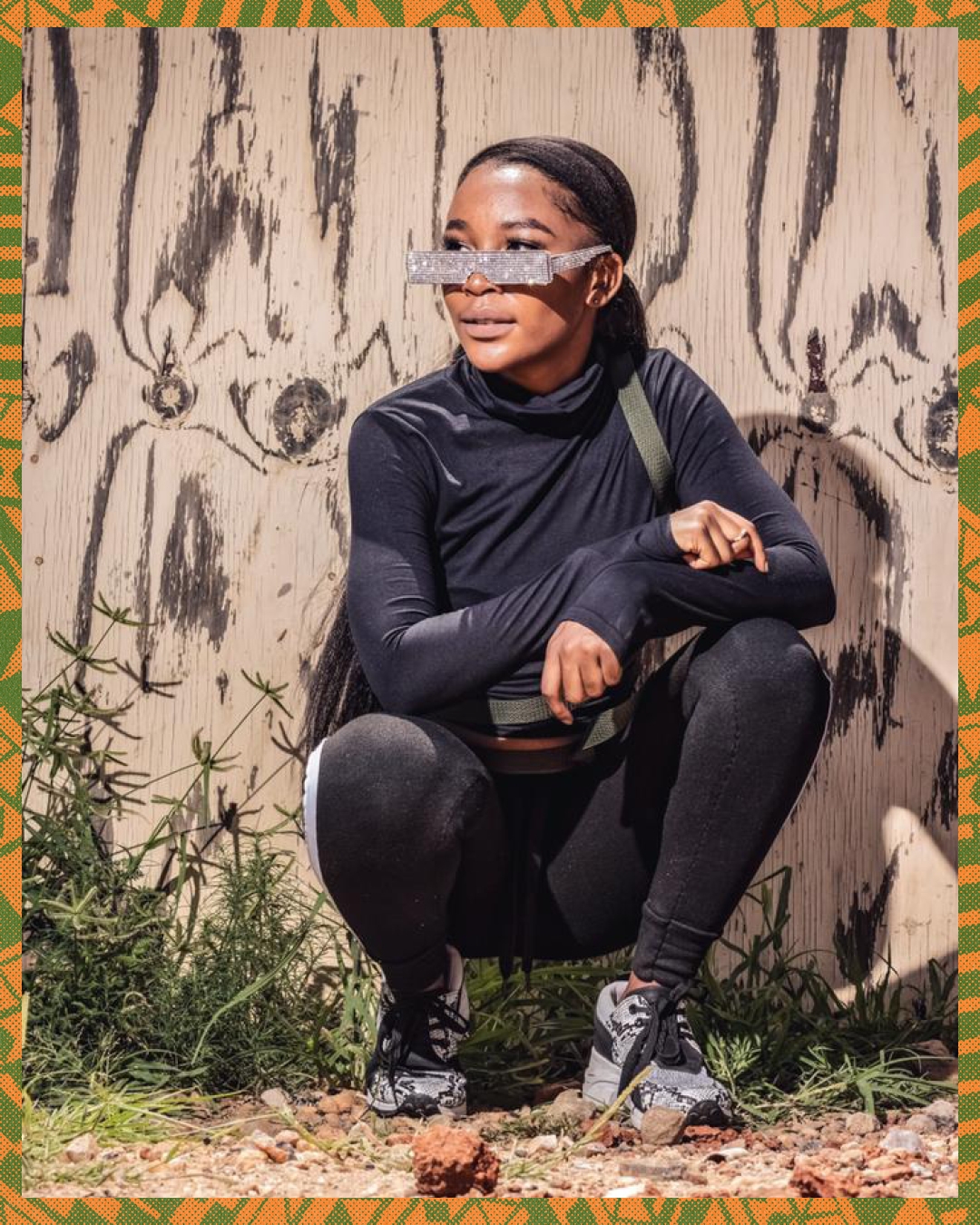
ALBA NALO
One of a handful of femme producers in the region, Namibian artist Alba Nalo has been championing her sound for some years now, since taking DJing seriously after co-hosting a late-night mix show on UNAM radio in 2012. She went on to win a DJ competition hosted by 99FM and Amarula in 2014, and later won the first all female DJ battle hosted by Jokers in 2016. Together with DJ Maggz, she founded Afroberries — a platform that aims to empower women who aim to carve out their own place within the music industry, earning the duo a place on Red Bull’s list of Opinion Leaders & Brand Ambassadors for 2017 in their respective fields. Since then, she released three of her own singles, with another on the way. Additionally, she hosts an IGTV project that focuses on promoting Namibian music of all styles. DJing has allowed her to explore other avenues such as singing, emcee-ing and dancing, opening new ways for her to connect with any crowd she stands proudly before.
“My journey has been quite exciting but also such an enormous learning curve. Frankly, I had no idea that female DJing was uncommon here in Namibia, so some people would stand in front of me either in amazement, wondering whether I was actually mixing or playing a pre-recorded mix... it was a weird time! But all in all I’m pretty lucky that the industry was very accommodating to me during my come up and I’ll always be grateful for that. Over the years more women started feeling comfortable DJing, but evidently we still have a long way to go because the ratio of female DJs to male DJs is still extremely low.”
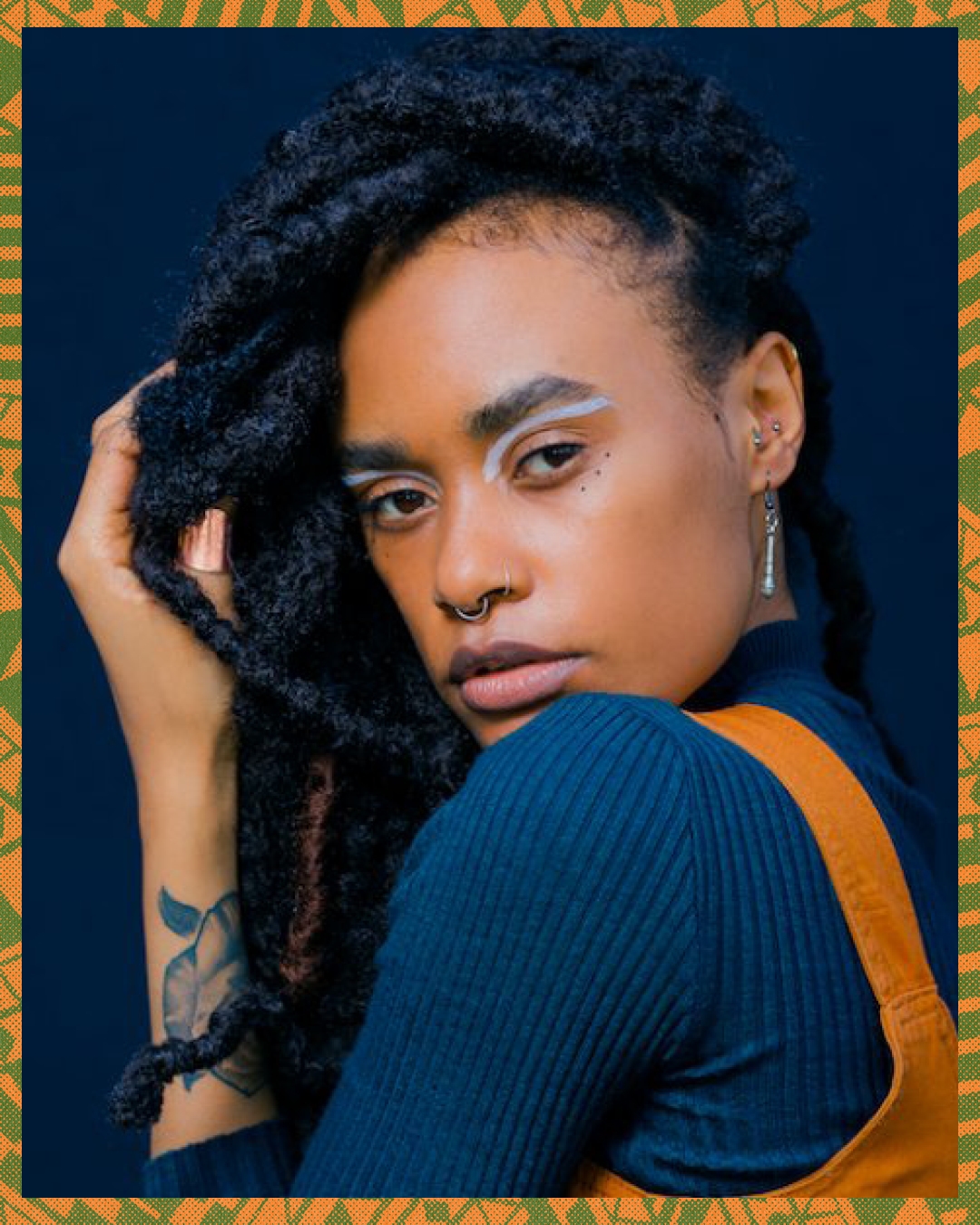
Sio
Despite South Africa’s lockdown, Siobhan King made major personal moves in 2020. In the literal sense she moved into a new home, and in the figurative sense, made the transition from being merely a featuring artist to an artist in her own right — and picked up DJing as well as expanding on her production skills and truly owning her creative might. In this post she talks about how her switching to production was met with resistance, and how her EP 'Features' was her way of expressing the frustration she came to feel with being undervalued within the house music scene. Having wrote a song detailing violence against women for one of South Africa’s national TV shows on SABC 2, It’s a Feminist Thing, Sio’s intention is clear; this is her time and she will do with it as she pleases, for the sake of her own bliss. With this she’s been able to cast her creative net wide, mesmerising audiences worldwide whether through a capella and poetry, or accompanied by acoustic guitar or syncopated synths.
“I’ve been having a lot of conversations with my peers and colleagues. They say you’re saturating the market and you’re a vocalist - a female one at that - so you need to cut off access to you etc., etc. But Corona hit and we could all die! That’s what I believe. We can’t be that precious about things. It’s like buying beautiful crockery and putting it on a shelf for a special occasion. What’s the point? You’re alive today.”
Get 'Features' here.
Read this next: The exploitation of Black women vocalists in house music
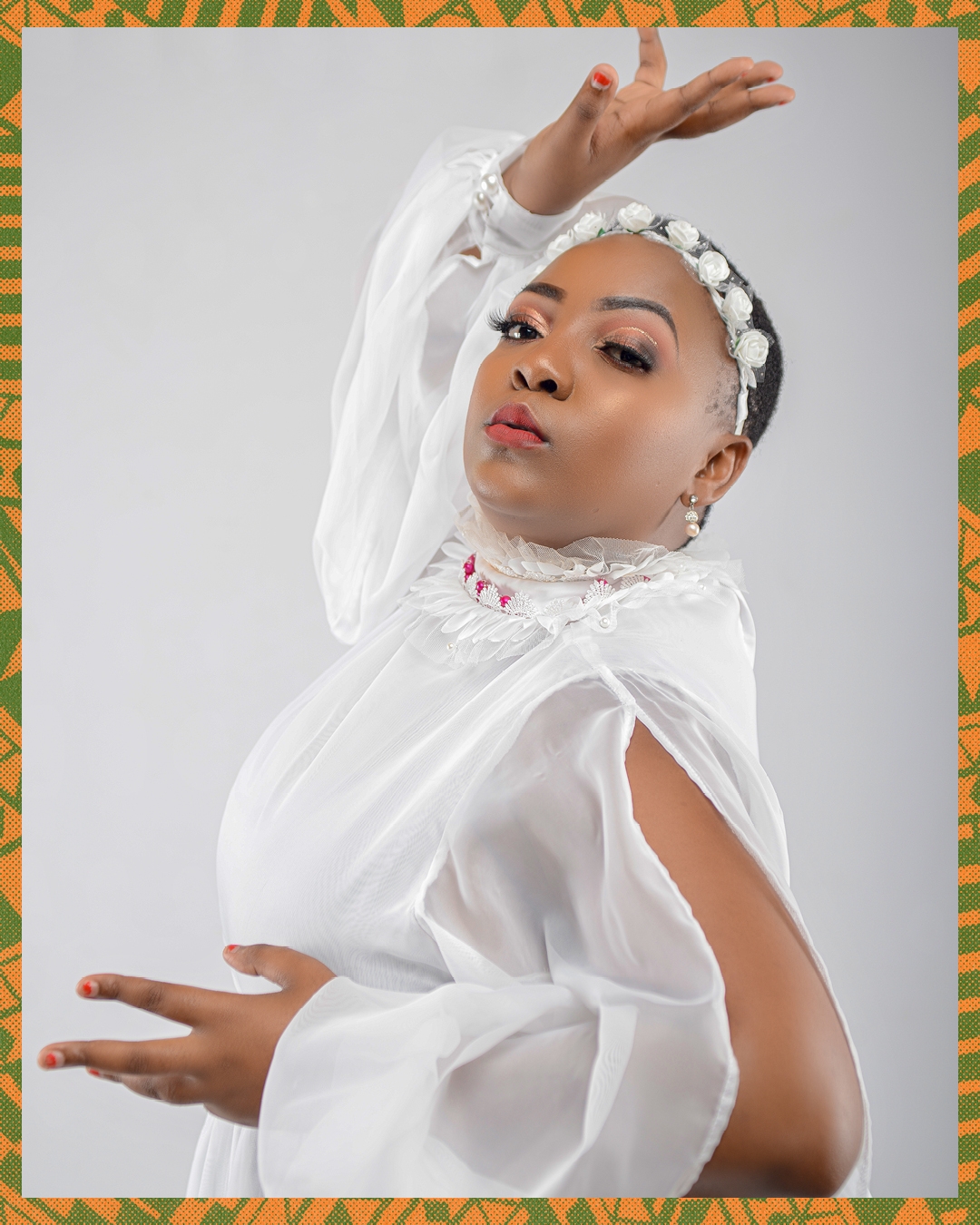
LIZWI
Known as the Zulu “Queen of Tribal House”, South African Nokuphiwa 'Lizwi' Mbatha has become a firm favourite in global dance music circles, ensuring that every production she graces really gleams. In an unforgettable moment during Black Coffee’s Cercle set in France, the crowd is visibly shaken by her vocal on 'Traveller', a track that to this day is earth-shatteringly entrancing. Recently representing on Nervous Records alongside Benjy and Levy M on 'Makukhanye' (with also got remix treatment from Ralf Gum), Lizwi is gearing up for a year of key releases that see the past, present and future converge around her goose-pimple inducing call for communion.
"I felt like a goddess that day. In that moment, I fully understood the purpose of the talent given by God and my ancestors. I fell more in love with my voice, my style and the power in it. It’s more of me getting it out there for people to know and understand what the feel of raw African music is, and I can say I'm happy to see that people are getting to know and love this genre. They don't have to understand the lyrics but the emotions resonate in tribal music. It’s proof that music really is a language in itself."
Read this next: Vocal House: The 30 All-Time Biggest Anthems
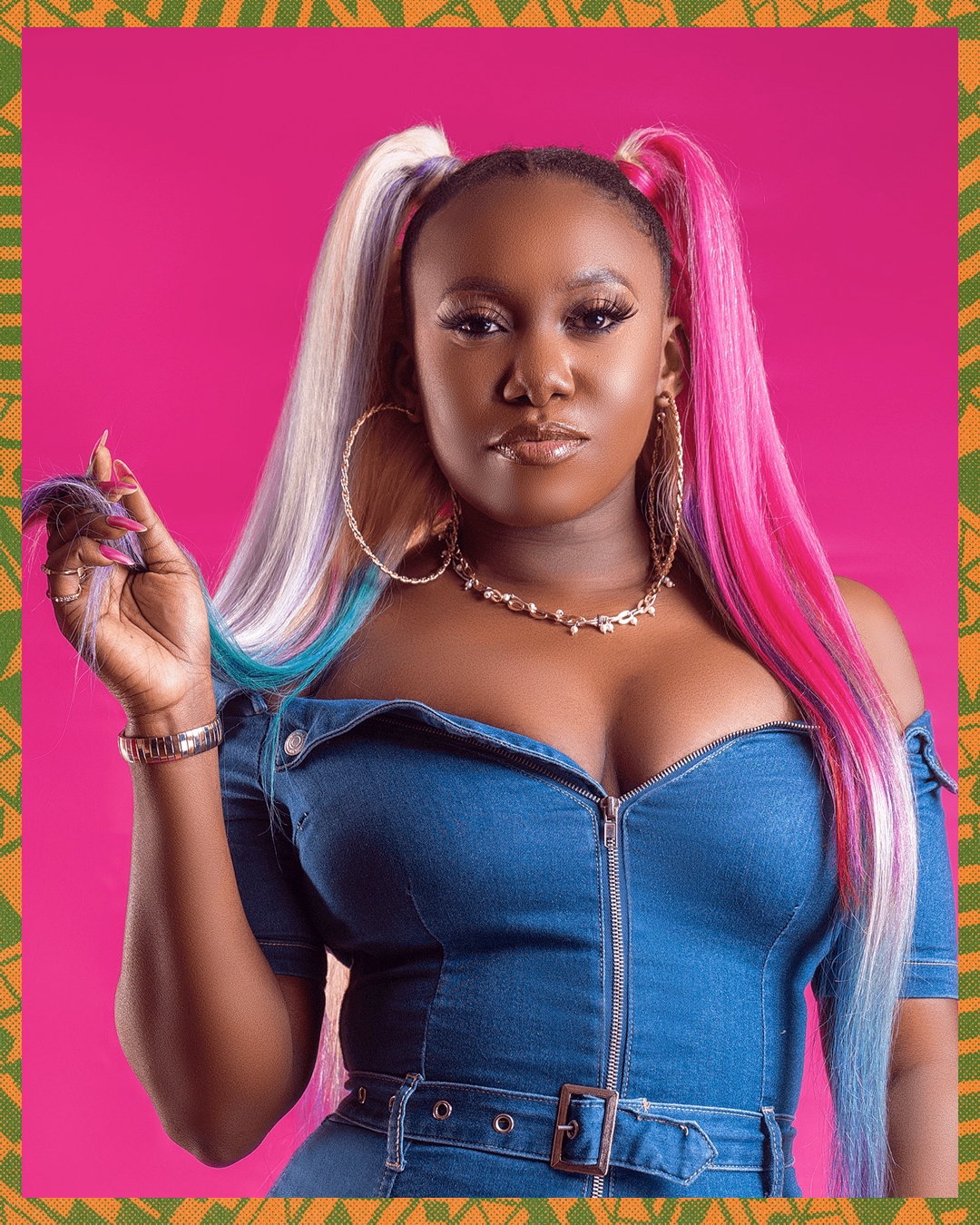
NINIOLA
Niniola is one of the most celebrated women to come out of Nigeria’s dance landscape. One of the first to try her hand at afro house, she has dominated across streams, charts and everything in between, garnering attention from the likes of Beyoncé, Missy Elliot and DJ Snake, particularly on 2017’s Sars-produced 'Maradona', a game changer for Naija beats to this day. On releases such as her 'Colours and Sounds' album from 2020 and this year's '6th Heaven' EP, Niniola leans on her tenacious spirit and African roots as a source for true power.
“I'm a human being. I'm African. I'm Nigerian. I love my skin. I love who I am… My Africanness has really helped me in my artistry. I called my album 'Colours and Sounds' because my music is very vibrant. You listen to my music, and it's like you're taking a happy pill, it’s music that transcends, and it's being listened to by different people of different colours, different races, different sexualities. Over all of that, our Africanness is our strongest weapon. The video for the track 'Look Like Me' is a song about celebrating yourself, celebrating how different you are and yet you still shine. In the video I played different characters; characters that are strong women: Missy Elliott, Lady Gaga, Harley Quinn, Wonder Woman, an African woman with her gele [head tie] etc. so if you see all these women, you see that they're very different yet they stand out. It just shows that as a woman, you can be who you want to be and still shine.”
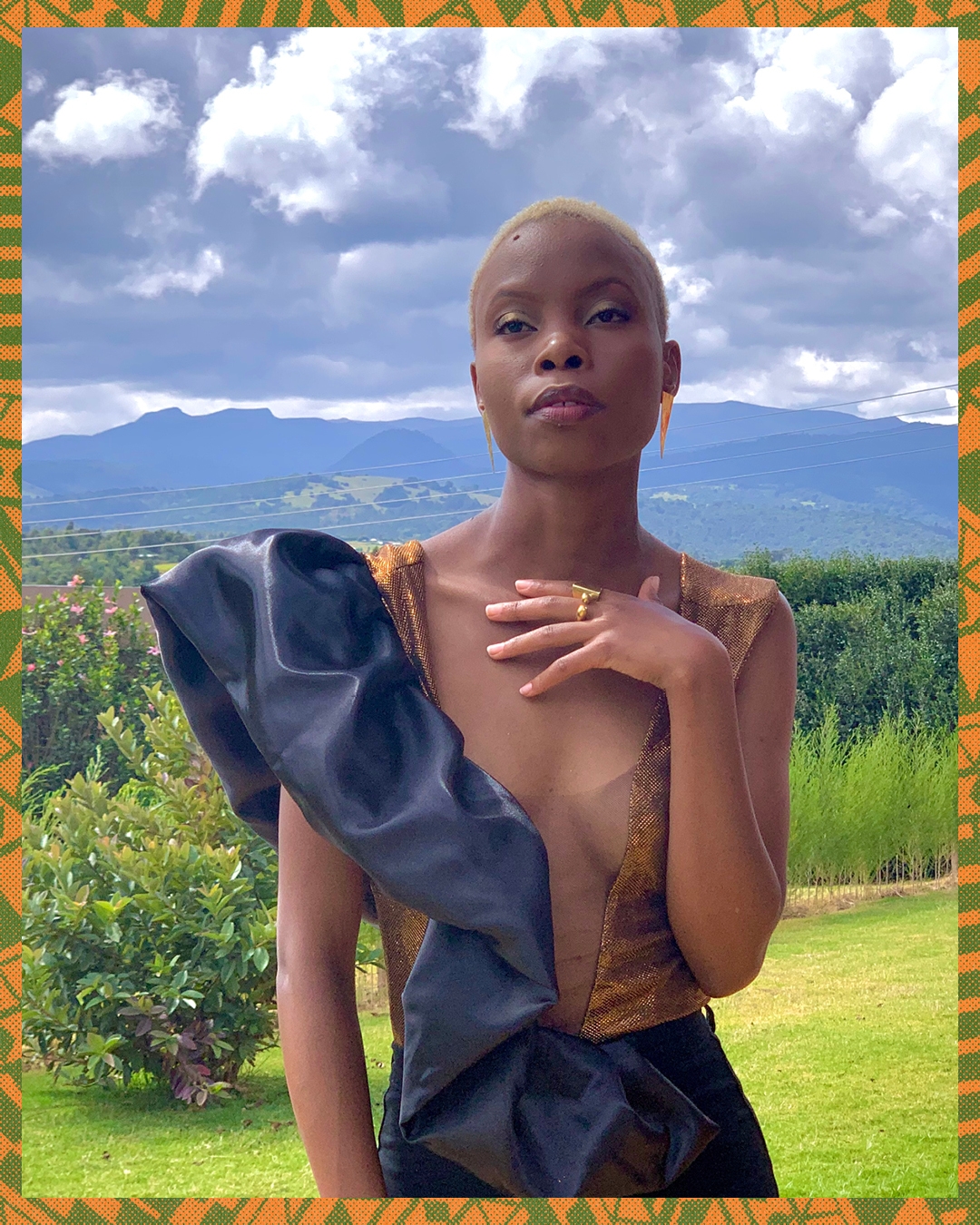
LABDI OMMES
One half of electro-duo Unganisha, Kenyan Labdi Ommes has made it her life’s purpose to bring the music she loves to more ears across the world. Adding her powerful Swahili vocals to Merge Emerge’s dancefloor version of 'Kucheza', remixed by Audiopervert, the percussively perfect original iteration is gaining traction with one foot planted firmly on the continent, and the other on the verge of a future that embraces feminine participation in traditional African musical roles. One of the only women to play the Orutu, a Kenyan single-stringed instrument usually forbidden for women to play, Labdi continues to change the game for the women who will come after her.
“Societal beliefs and conventions regarding the female body and allure were an obstacle to women being musicians, due to trepidation about their physiological strength and the view that some instruments were 'unsightly for women to play', either because their presence interferes with men’s enjoyment of the female face or body, or because a playing position is judged to be indecorous. In Burundi, female drummers were banned from playing the Royal drums to prevent placing their instrument between opened legs among other reasons! Women playing Orutu not only challenged sex but also challenged manhood altogether — that is why there is just a few of us women pursuing these instruments that formerly were taboo for us. I want to inspire the younger generation to venture into authentically African instrumentation. These skills will be lost if we do not take them up and teach ourselves and others about them. I also want to inspire women and young girls to chase their dreams, however taboo, however 'invalid'.”
Read this next: "Africa is hardcore": Duma are here to melt your face off
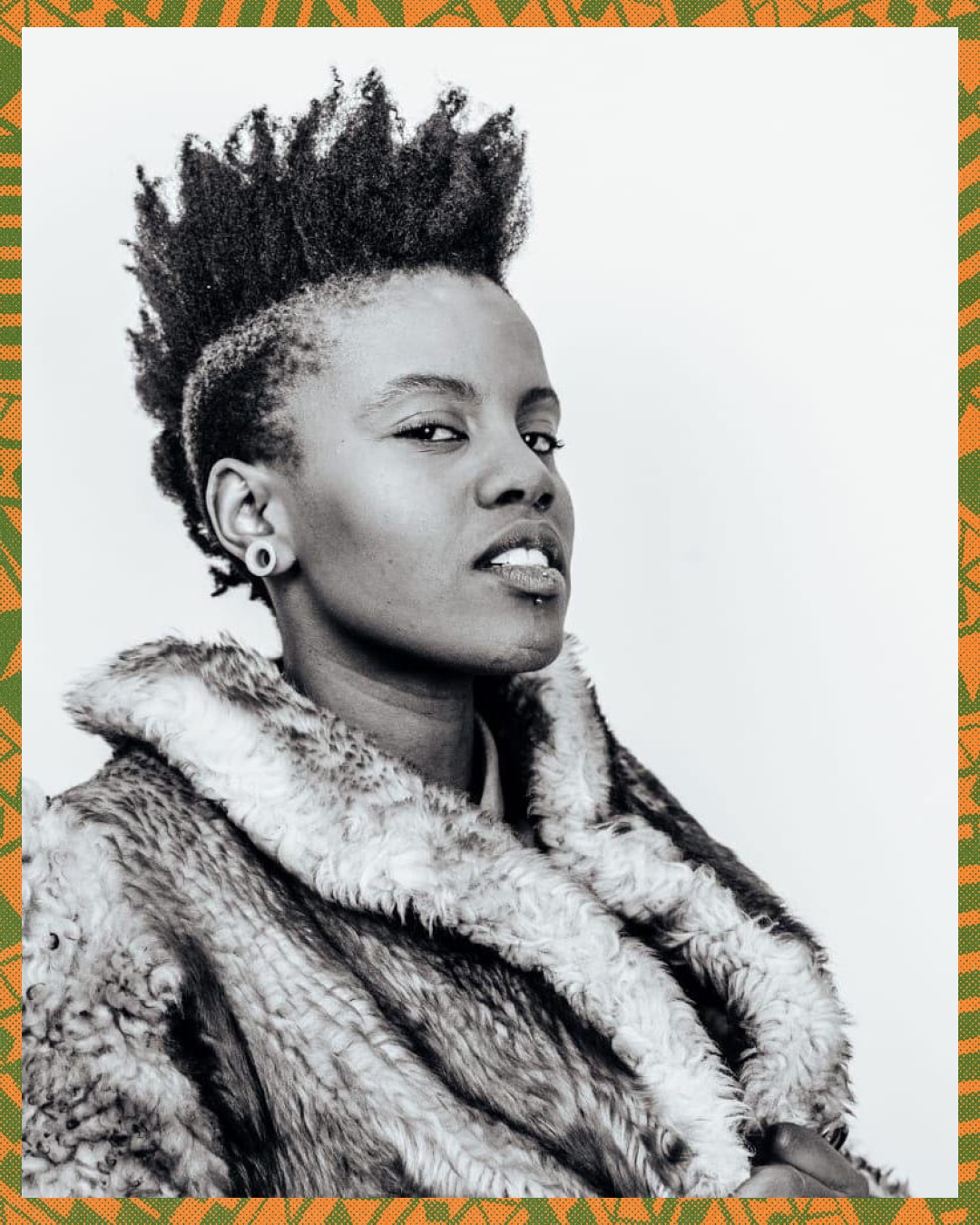
TOYA DELAZY
Queer life is South Africa is far from easy, particularly when you’re a public figure, or a woman — or both. Even though we see more depictions of queer life in mainstream media, Black communities of South Africa still struggle to coexist with LGBTQ+ communities. In 2012, Toya Delazy burst onto a scene that was aching for a fresh, new sound with 'Pump It On' propelling her to nationwide stardom. Coming from a family of respected Zulu leaders, including her grandfather and poltician Dr Mangosuthu Buthelezi, Toya struggled to live the life she really wanted as a queer woman in her prime, proud and full of creative energy. Going down a path of heavy resistance, struggling with major labels and choosing independence in a bold relocation to the UK, Toya has re-emerged in the underground, embracing her newfound freedom of expression in a string of releases she calls “AfroRave” that blend SA and UK culture in a way that only she can.
“It seemed for a long time that it wouldn’t be possible to thrive in South Africa. It seemed like it was a gift that was reserved just for men. The fact that one's very existence was taboo made people feel like they could exert their views... The institutions I was born into… royalty, politics, religion… all of this. ‘Doing me’ was taking a leap of faith, so it wasn’t easy but you get to the point where, if you do anything else, you know you’re not living your truth. So I embraced it and it made me feel good. Everything else didn’t make me feel good, and when I found the music and found that release, a place where I could be heard, a place where I could speak, I realised that whatever comes, this is where I’m at, and this is where I exist. And that’s why I felt I had to leave… I was feeling silenced. I know it sounds like a lot but in SA we get judged hard, from jump. Even though there’s a lot of prejudice here [in the UK] too, it’s not that I don’t acknowledge it, but there are certain things that people understand is your right. Your freedom of expression is understood. In SA it’s not yet, and there’s a long way to go — but I was so excited that I was prepared to start again and do the work... So here I am.”
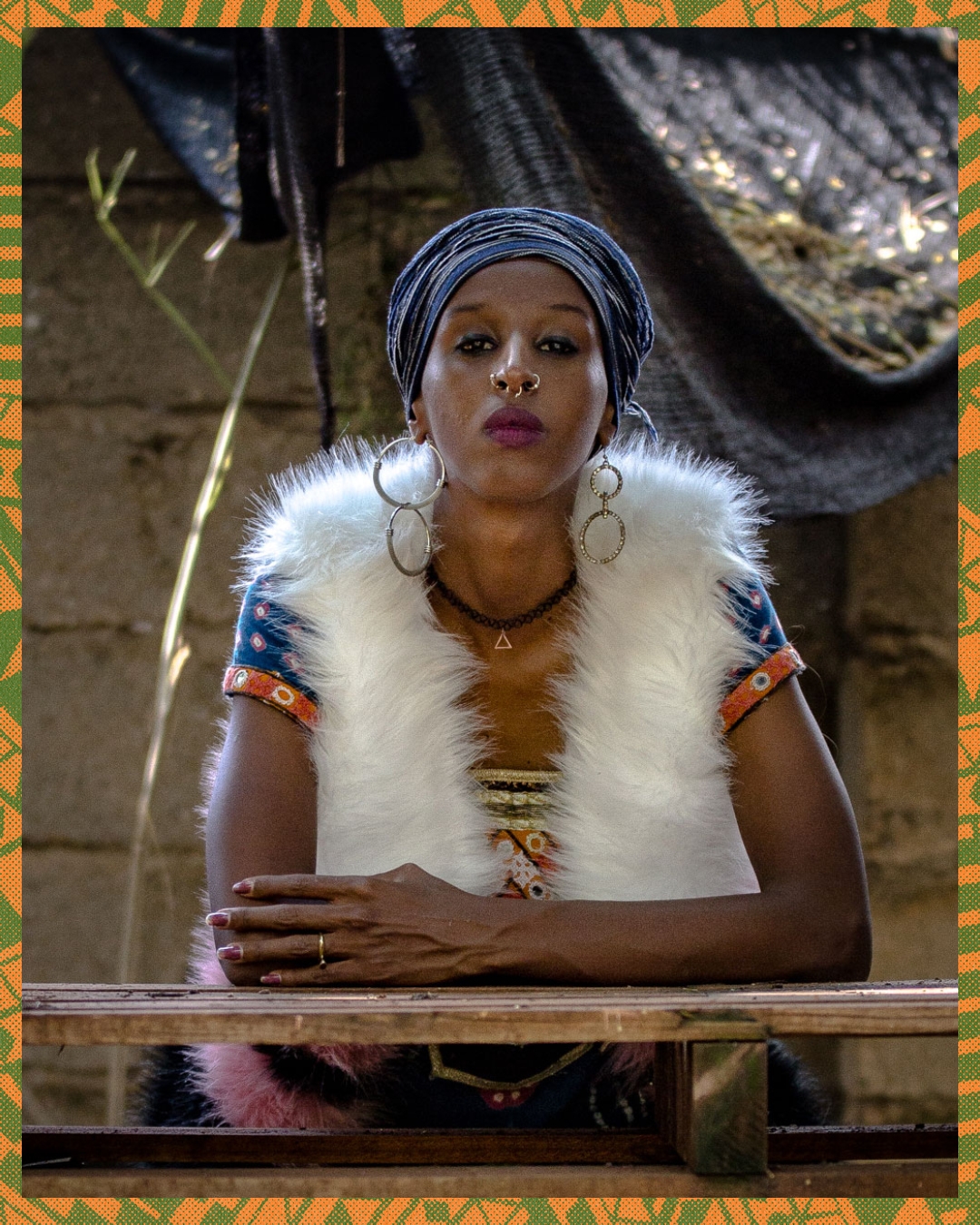
HIBOTEP
When I first met Hibotep, we sat in the lobby of a Norwegian hotel before a music conference that would address the lives of African musicians and their utopian futures. As the seasons have come and gone, her influence alongside camp Nyege Nyege has snowballed to a new movement for dance music on the continent, all the while pouring her heart into every note. Last year, the Somali-born, Uganda-based DJ and producer teamed up with Titoffee on a slew of love-laden tracks released via Swiss label Les Disques du bord de l'eau dubbed the 'Winter' EP, bringing warmth to dark places with four contrasting tracks imploring us to “hold on” to our love of African self and African sound.
“As Africans, we are taught that the West is where we are supposed to be, the West are “goals”. A lot of our ancestors took boats and went as refugees, married so that they could leave the societies that are dangerous for them. I was in a taxi yesterday with this man. He said, “we came here for a better life, but this 'better life' is limited. My name is Mohamed. Even if I am smart enough, I will never be hired because my name is Mohamed. I am a Somali-Norwegian, and I can only do this certain thing.” Then It hit me. In Africa, I can do, and be, whatever I want... if I work for it. All I have to do is work, I would not have to change who I am. This is the African privilege that I’m understanding and because of that I have more respect for the society that I come from.”
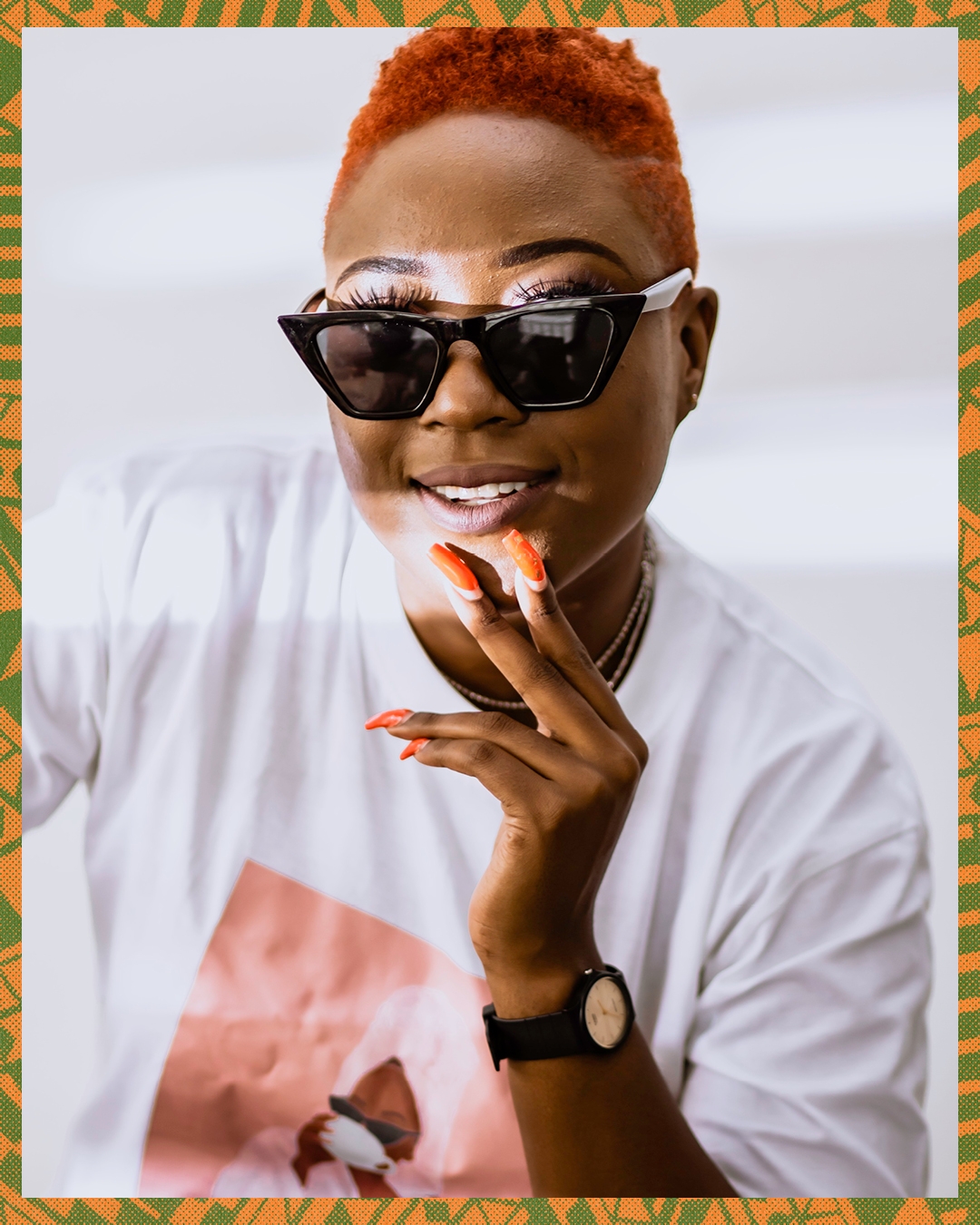
MS SELFIE
Also known as 'Little South Africa', a lot of Zambia’s societal juice comes from the fruit of South Africa’s cultural landscape, but if you look closely, Zambia is bursting with creative talent all of its own. One such talent is Ms Selfie, who is one of a handful of house DJs spearheading groundbreaking work, and one of the few women in the region’s entertainment sphere embracing dance culture. Coming to the fore during the Rackless Kazi program in 2018, Ms Selfie has levelled up every year, sharing house and amapiano mixes seasoned with 90s hits. While the scene has a way to go, dancefloors are brimming with fandoms growing exponentially with each event against the backdrop of some of the most amazing sunsets you’ll ever set eyes on. Moving toward producing her own sounds last year, Ms Selfie plans to be at the forefront of this dance music wave, cellphone and CDJ in hand.
“More women are taking this seriously, their approach has become different so far. Their presentation and professionalism has become better… The only issue is that most men feel threatened by that and try to badmouth the women who are doing it. The pay is not as high as the gents as well, and they believe women DJs are “difficult to work with”. Women get a bad rap. Men often turn up to the gig not dressed for the part, they’re often intoxicated… anyway many women have turned it around. Being sexy is ok, but we’re not dressing for the men that are coming to see us anymore, we dress for ourselves. Many women are adopting characters, some come dressed formally, or in suits, some follow themes... Me? I just go with how I feel. I like to bring nostalgia to my sets. It’s really nice to listen to a set and realise you haven’t heard something in a really long time next to something really new, and I hope others enjoy it too. So far so good!”
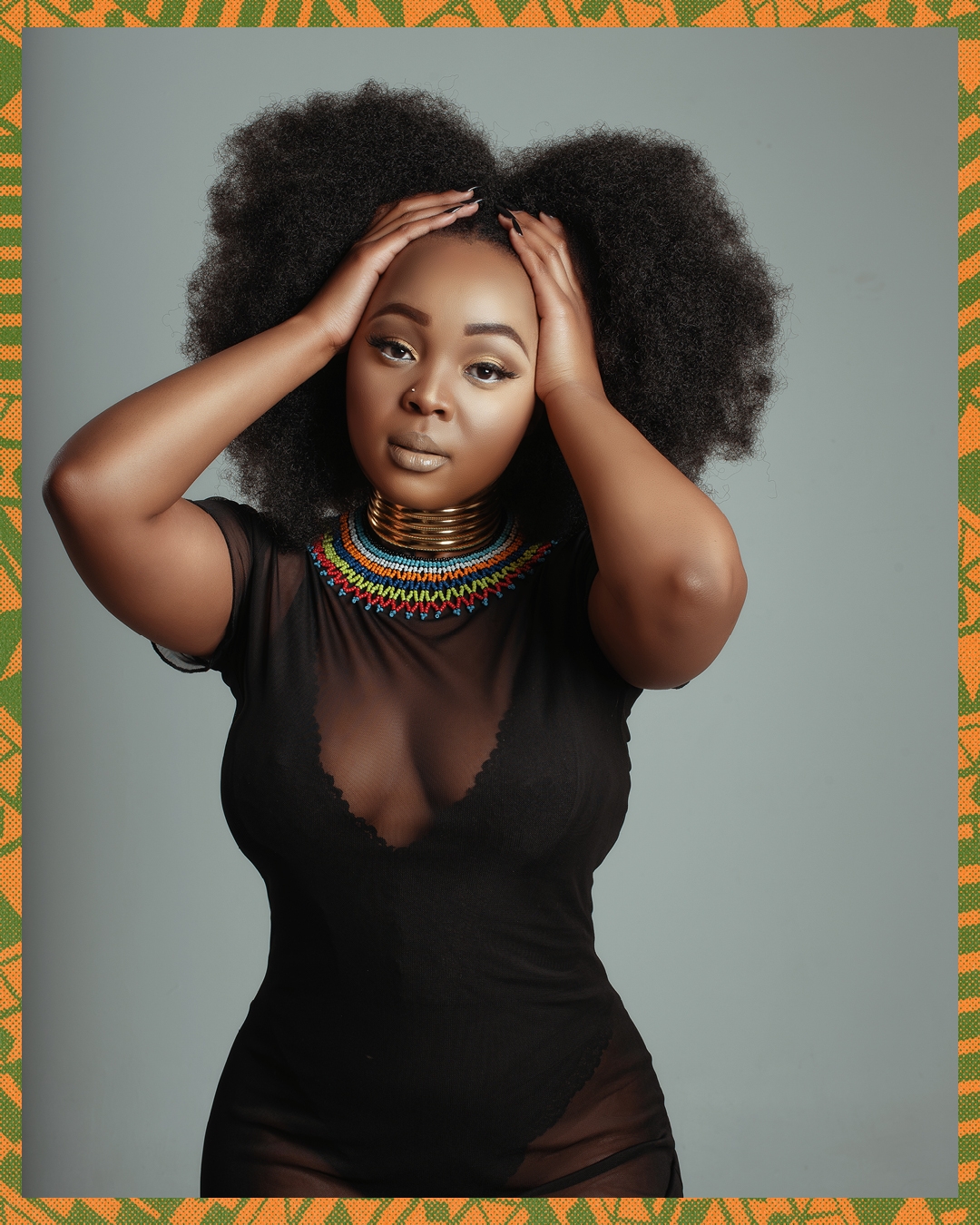
THANDI DRAAI
For quite some time, Thandi Draai has been heralded as SA house music’s femmetastic triple-threat. Starting out as a vocalist - because her voice was literally all she had after school - she began to use her time at Soul Candi to carve out a path toward becoming a producer and a DJ as well. As much as these are just three things that Thandi happens to do, her greatest asset is her ability to bring a refined ear to every part of the music going out and coming from inside of her.
“Ah man, there’s just something so majestic about African women in the dance scene... listen to Toshi, Tabia, Lizwi, Nobuhle, Mzulu Paqa, Khensy, Nana Atta, Bonj... the list is endless. Their music is rich in tradition, culture and spirituality, and that’s powerful. I can’t compare their vibes to anything else, we are intense! The scene can do with less fear, way more love and appreciation for each other... with that type of vibe we can change the narrative. Qha! [That's it!]”
Read this next: In Session: DJ Lag
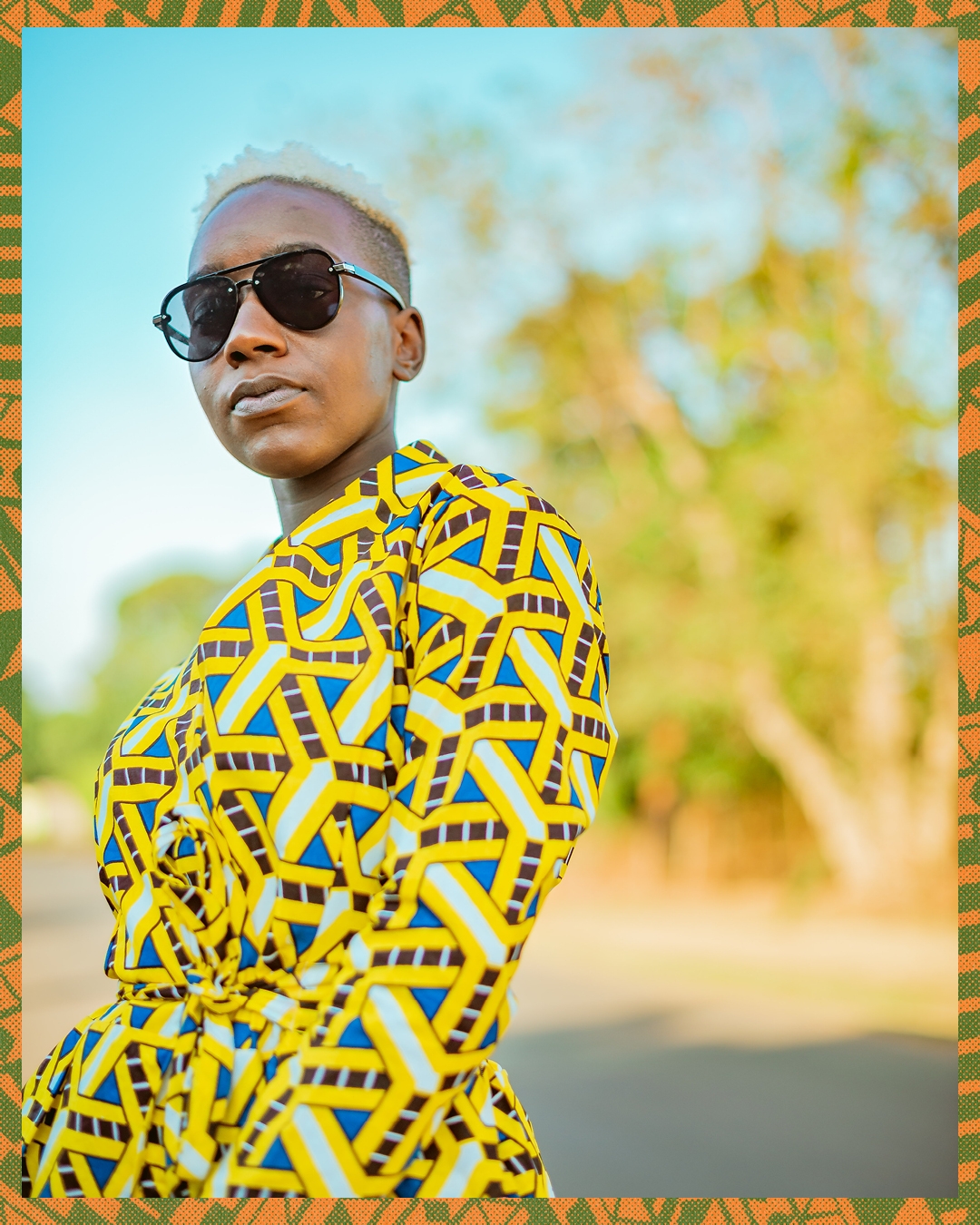
RJ THE DJ
Rejoice Msindo, or RJ the DJ, has been spearheading dance music from her home in Malawi, and stealing hearts across the UK, Zambia and South Africa. This house music pied piper is currently relocating to Tanzania, in search of uncharted dancefloors and the beautiful landscapes that come with them. One of the toughest parts of her situation is that women in Malawi are discouraged from doing anything that helps disqualify them from being “a good woman”, and this includes having anything to do with the music industry. This includes having anything to do with the music industry. Even though her gift for music and motion give her birth name its truest meaning, it may be a while before more women get to reach the heights that she has. But surely less time than it would have, were it not for women like her...
“The treatment of women like in the Malawian dance music scene is pretty hard… You're fighting battles on all sides; we have to face it day by day. When you’re fighting the industry itself, where you have to convince people that music is lucrative, then we have to double that fight whereby we can do the job as good as a guy can, or at least be willing to accept the difference — if any! You have to bring your A game at all times, so you can’t relax, you always have to be on point and it’s twice as hard for women... We continue though. I want to explore. The same way I’ve been to Zambia, the same way I’ve been to South Africa... A friend of mine and I were talking and we decided that it wouldn't be so bad to just tour African countries and DJ there, and never really go anywhere else. My trip to Tanzania will fix that.”
Read this next: These artists travel the world to create next-level sounds
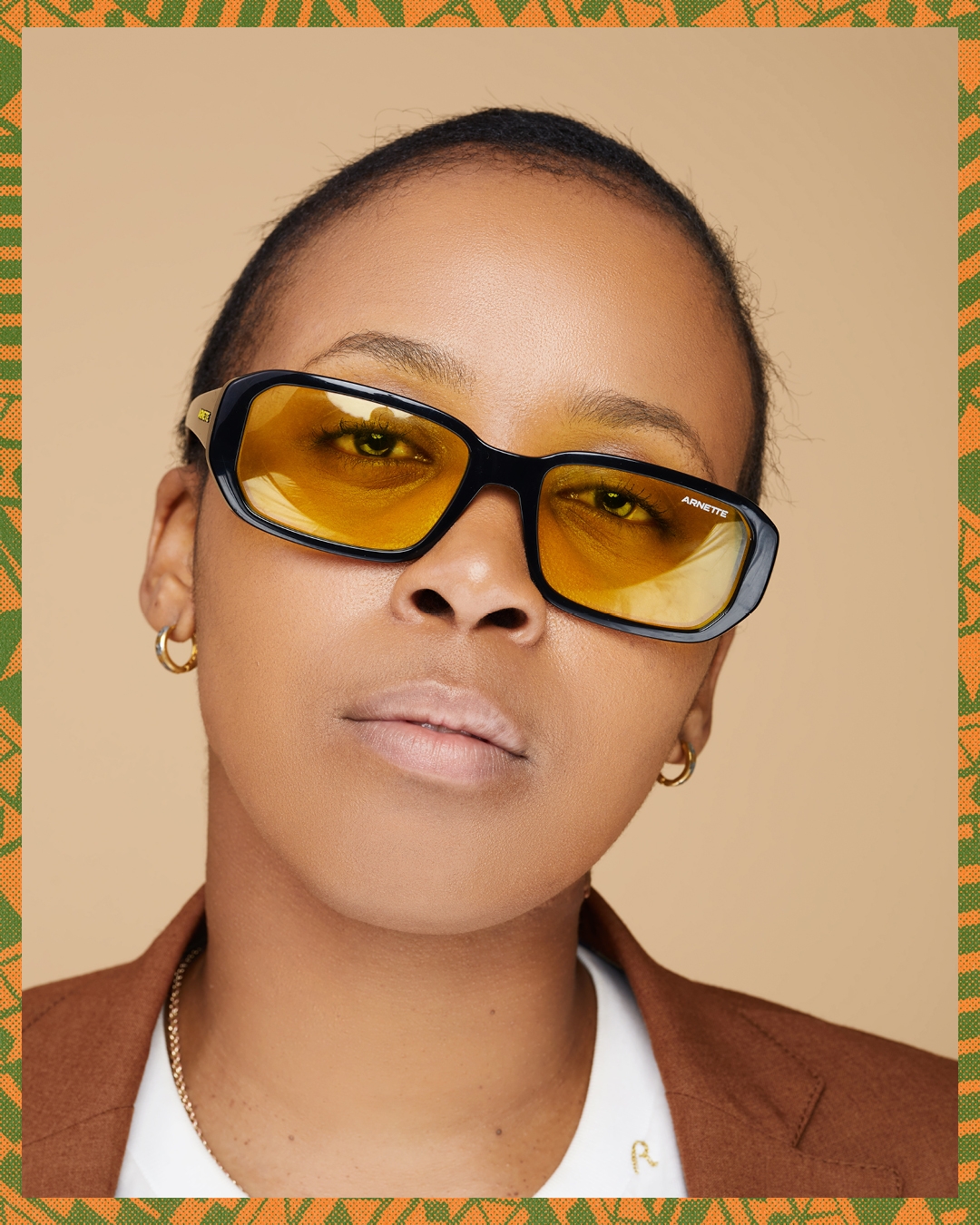
DJ LESOUL
Born and raised in KwaMashu, in South Africa's KZN province, Precious Mdlalose (or DJ LeSoul) has gone from church instrumentalist, to Gagasi FM radio DJ, to house music phenomenon hand-picked for Black Coffee’s Soulistic stable. Describing herself as a scientist, she’s all about discovering the next great sound, and she’s convinced that that sound comes from the continent she calls home. DJ LeSoul has figured out the formula for a great groove, in her sets as well as her songs for release and sees no end to the wealth of talent Africa has to offer...
“You can come to Africa for any number of reasons. But if you come here for the music, you’ll go home fulfilled. You will go home deeply satisfied, you’ll go home with ideas… you’ll go home with a clear idea of what we represent as Africans. I feel like Africans are spread all over the world; this is just the place where we all come from, but we are everywhere. New York, Miami, Australia, London… but this is the place where that original beat in house music comes from. We are a community that lives according to the beat of the drum. Even though we don’t wear animal skins anymore and we have evolved, the need for the beat is the same. We no longer need the West to validate our music… we appreciate it when it happens, but we take pride in what we do because it’s forever evolving.”
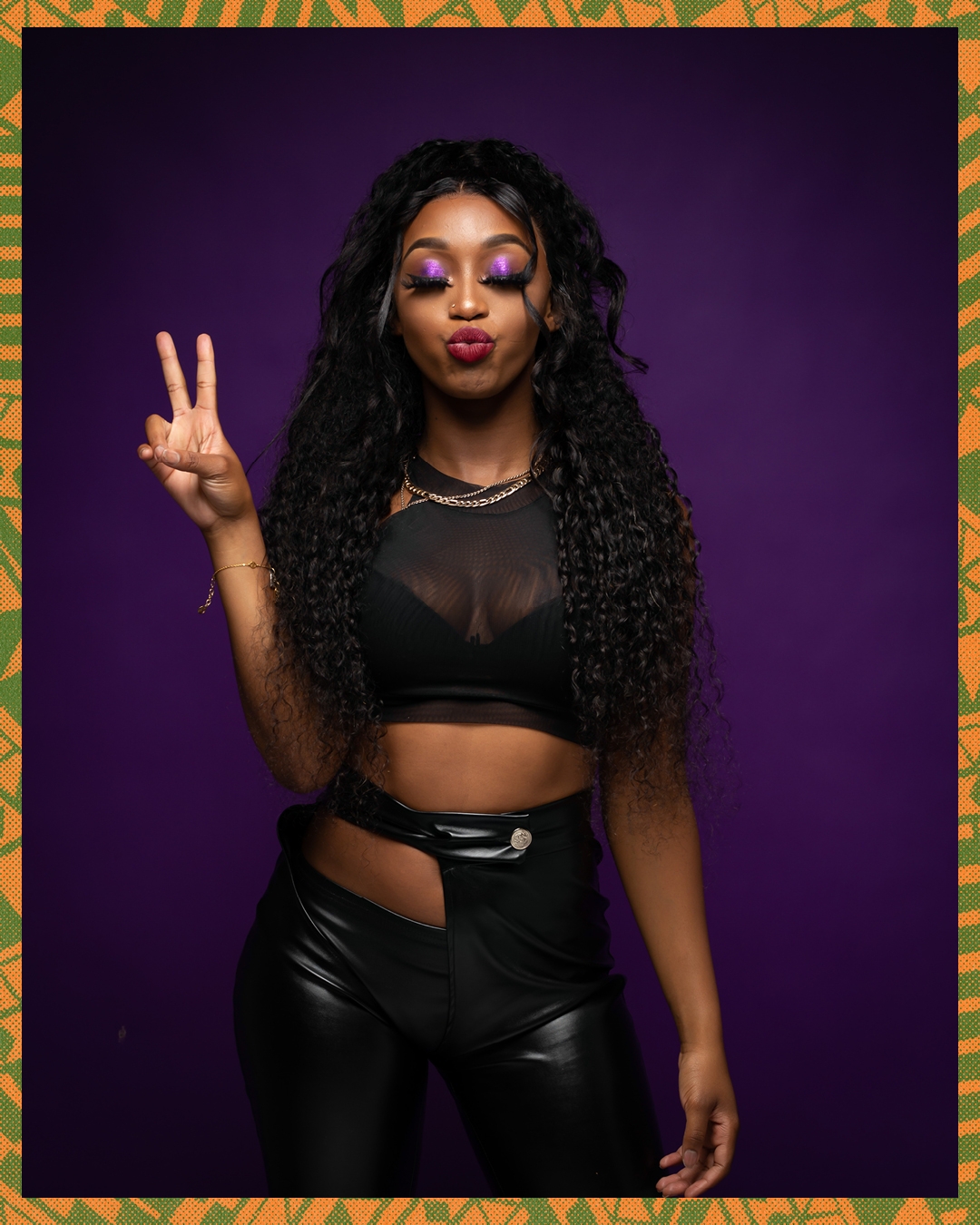
KAMO MPHELA
Kamogelo Matona, better known as the immensely talented Kamo Mphela, is another of Africa’s favourite triple-threats. Starting out as a dancer in Gauteng, then going on to choreography, acting and singing, Kamo has championed the sound of amapiano with every ounce of her being. Making moves and music that laid the foundation for Spotify’s African Heat campaign this year, she’s appeared alongside folks such as Busiswa, Focalistic, Patoranking and MFR Souls, creating room for any woman to make a home for themselves in such a predominantly male-dominated genre.
“I was in my first year living a normal teenage life and doing dancing as a hobby. Amapiano came in and fit my style of dancing... and as the trend grew I was in the perfect position to break into the industry, despite it not being my set goal of being a performing artist. So I learnt to position myself to get to where I am today and I literally went from being “a Soweto girl who can dance” to being a brand, performing on stages I never imagined! Unfortunately the music scene has always been dominated by men. As women we always need to work twice as hard to be recognised as more than just a gender, but I do see a lot of phenomenal women taking their position in the industry and it can only get better with time. Hopefully we will live to see women being heads of major labels and getting the same respect and recognition we need.”
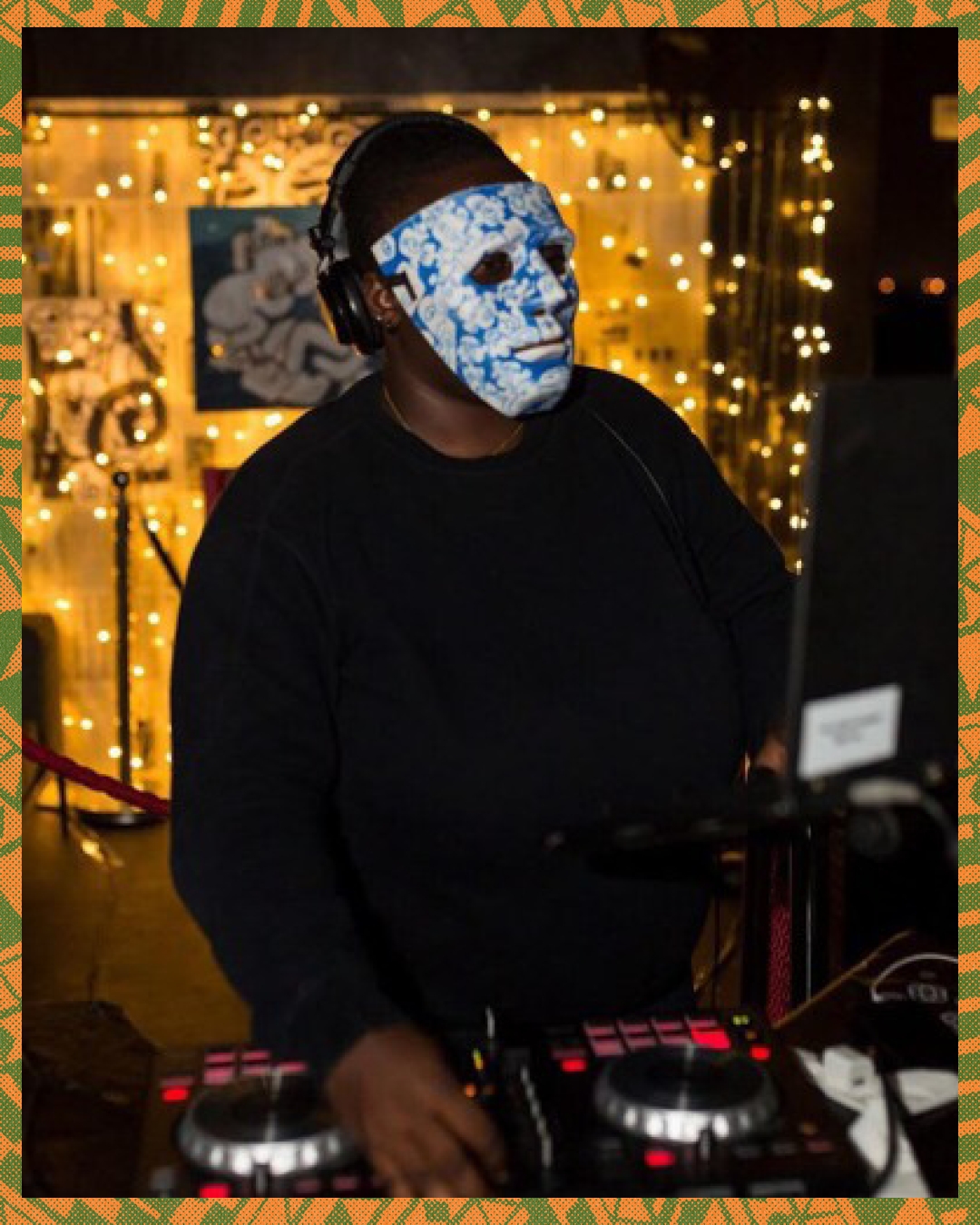
TMSKD DJ
Multi-award-winning DJ Michelle Nana Adwoa Agyakomah Yeboahm, known as TMSKD DJ (“the masked DJ”) is blazing trails for the Ghanaian electronic scene, creating alternative spaces for aspiring music makers with her FEMME VIBES BRAND, a platform she created to showcase female DJs every year during Women’s Month. In an effort to try to help the audience focus on her graft rather than her gender, TMSKDJ started wearing her signature disguise in 2015. Thereafter she created the Eargasm EDM Show, broadcasting across a year on Xlive Africa Radio. With a penchant for discovering fresh talent she’s hellbent on creating opportunities for anyone who feels the need to make their mark in music.
“The future of African dance music is clearer than ever before. My current peers and I are not the originators, of course, because people did it before us and it's our time to continue and build on what they started. The Ghanaian music scene is changing, it's growing and it's more accepting to alte or experimental music. Younger people have taken up the role of music business executives and notable names out of these are women. We are still at a place where the industry is majorly male-dominated but I will also not be speaking the truth if I don’t acknowledge a number of women who have come up in the last few years and are doing incredibly and exceptionally well. If I wanted to change anything it would be the gatekeeping in the industry; accessibility to all is key to make the industry less saturated... and last but not least I want to see the emergence of more female producers.”
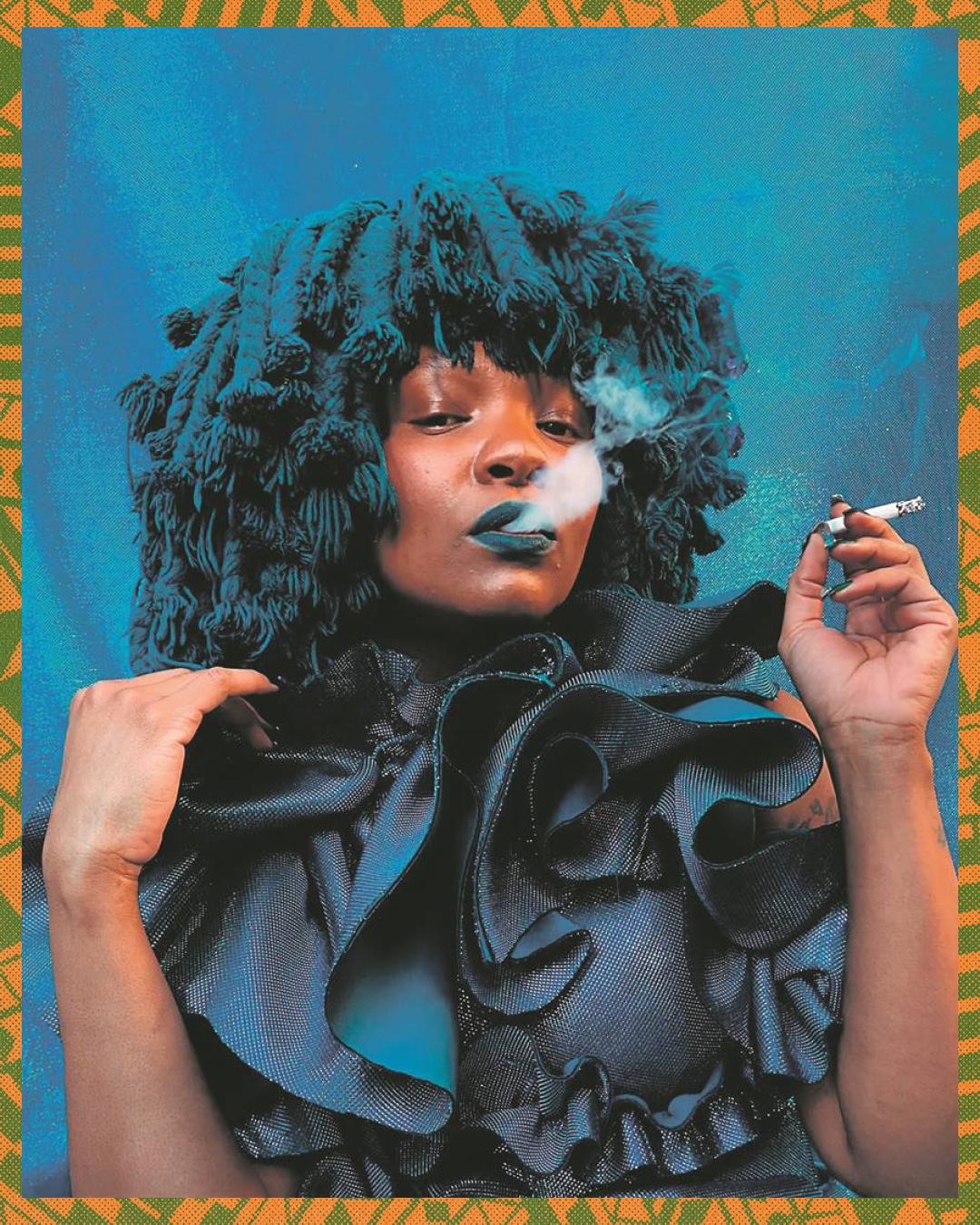
MOONCHILD SANELLY
One of the most versatile voices to show up in gqom, house, EDM and ‘piano, Moonchild Sanelly was one of the first to reincarnate the same fire South African icon Brenda Fassie exuded in the height of her career. From 2018’s Weird Together collab 'Down Low', to the Maphorisa-produced 'Makhe' and 2020’s epic 'Bashiri' off her debut album 'Nudes', Moon is choc full of social commentary, sexual innuendo and a truly unique freshness that clears a path for any and all women to walk into a future that is female, fluid and fucking sexy.
“I think the moment I knew the world needed me was when I experienced poetry. All the women were always either in love or violated, but no one was ever powerful. One thing that holds us back as a country is that we don’t know our own power. We all come from a generation where our parents needed permission to be Black, let alone be outside. If you still have a grandparent born before 1994, in all likelihood you have someone white people have made sure will believe they don’t have power. But we are magic! And those things don’t disappear overnight, we are going to have to be the kind of parents to change that. Especially when you live in a world where being different is not celebrated. I’m excited about having my own TV show, it’s going to be bums, bums, bums, bums, bums... and a lot of liberation.”
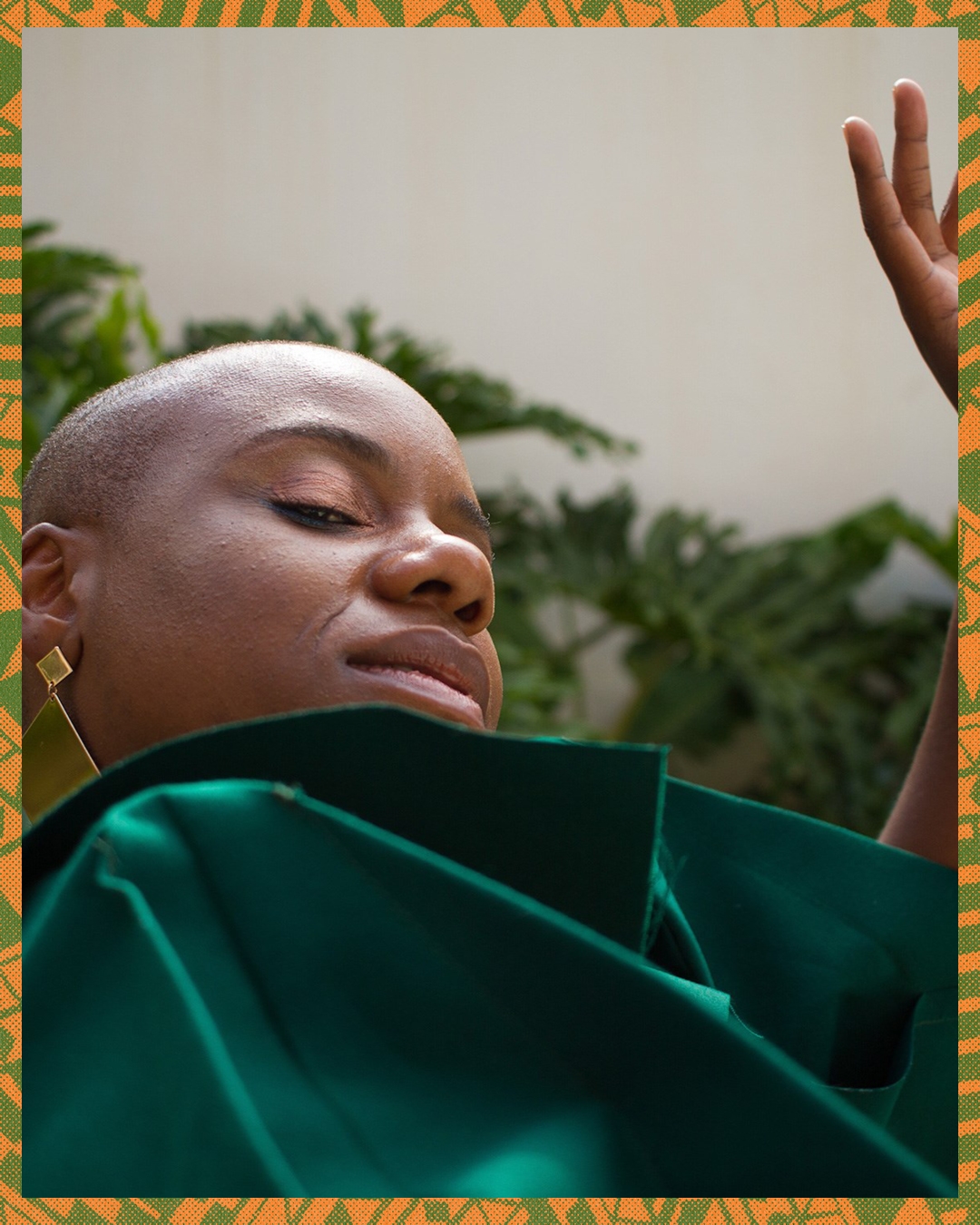
JACKIE QUEENS
Born in Zimbabwe, and singing, advocating and label bossing her way heavenward as Jackie Queens in South Africa, this pivotal voice in house music has raised the bar for what is possible for female house vocalists everywhere, under her own label Bae Electronica. With extensive knowledge of the global music industry, and hunger for knowledge and the power that comes with it, Jackie will undoubtedly be written into history as one of the sector’s most respected advocates for women. As for her own journey, she says the past year has been kind:
“As a woman in electronic music, there are just so many things that we can be unhappy about. What I’ve realised in the past year is that challenges will always be there and it’s all about how you respond to them. In the aftermath of BLM and some really major sexual harassment cases and a greater focus on inequality in the dance music space, what’s remarkable to see is how there’s a greater sense of urgency, perhaps. I’m seeing more women coming together to advocate for themselves and for each other. The work is becoming more visible and intensified and it’s gotten to a point where it’s becoming difficult to deny that something needs to be done and that women are taking control. That for me has been a huge source of inspiration and courage over the past year to the point that it’s changed me, as a person.”
Read this next: We need to end sexism, misogyny and violence in dance music
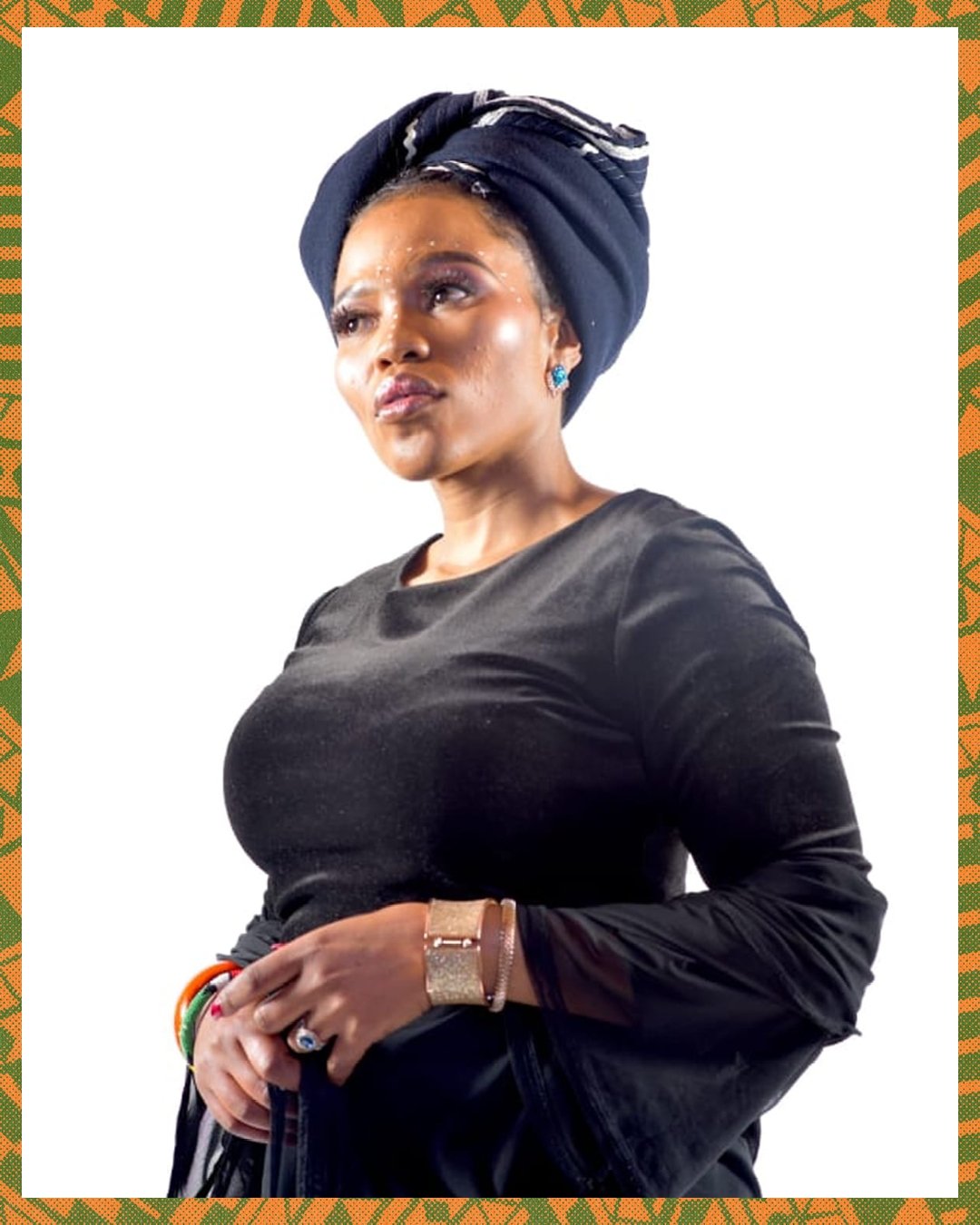
TOSHI
One of the most sonorous voices of Africa’s electronic music scene belongs to Cape Town-hailing Toshi. Collaborating with respected producers the world over, from Ralf Gum to Black Coffee, Siphe Tebeka, Lemon & Herb and Timmy Regisford, Toshi Tikolo brings unparalleled power to any production, making timeless tracks that have shown women who value their gift that staying true to one’s own will is the best way to reach any star. Starting out in the jazz scene, she fell in love with writing songs at the age of six with a guitar at her side. Today, she is one of the most sought after vocalists to come to the fore, releasing her debut album titled 'Ubuhle Bendalo' in 2016, and never looking back. If there’s anything Toshi would like aspiring women to take away from her journey, it’s this:
“Music has been a man’s world. Especially for women, the first thing they want to do is exploit you, diminish you, sexualise you. But you have a role to play. You have power. You have the power to teach people how to treat you. You don’t have to wage war, you can use your power gently too. And the more consistent you are in your firmness about what you will and will not accept, then they’ll turn around, love you and praise you. But nevermind about them and what they think of you. As a woman and as a human being you have a right — and you are always capable of teaching people how to treat you. When you’re starting out, you think you have to make compromises and give away your gift, not knowing that you’re selling your craft short. When you sell your soul, that same soul that produces beautiful music will run dry. And it won’t be them that destroyed you, it’ll be your desperation to make it no matter the cost that destroyed you. Believe that good things start slowly. If you want to truly be successful, you have to be ready for things to move slowly; for disappointment, for the monsters you’ll have to slay, for all of the negativity. Be ready to stand up for yourself despite all of it.”
Shiba Melissa Mazaza is a freelance writer, follow her on Instagram


